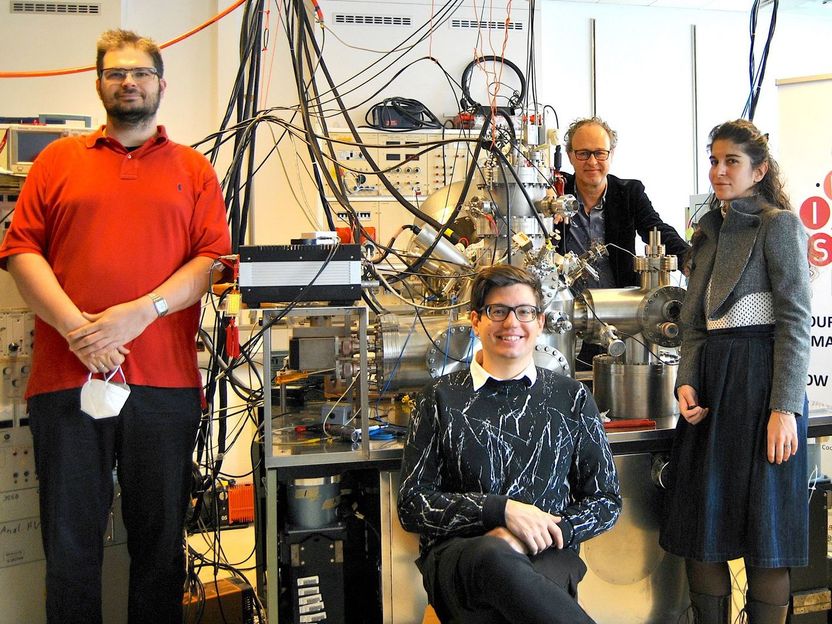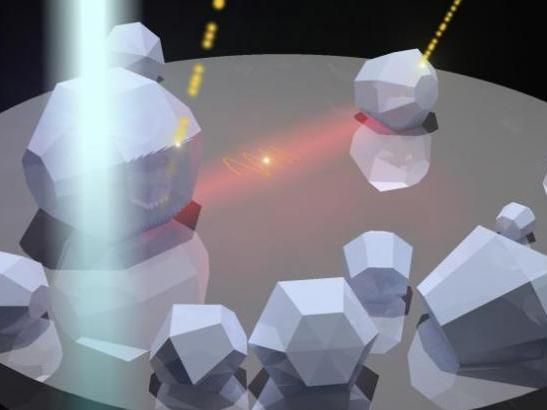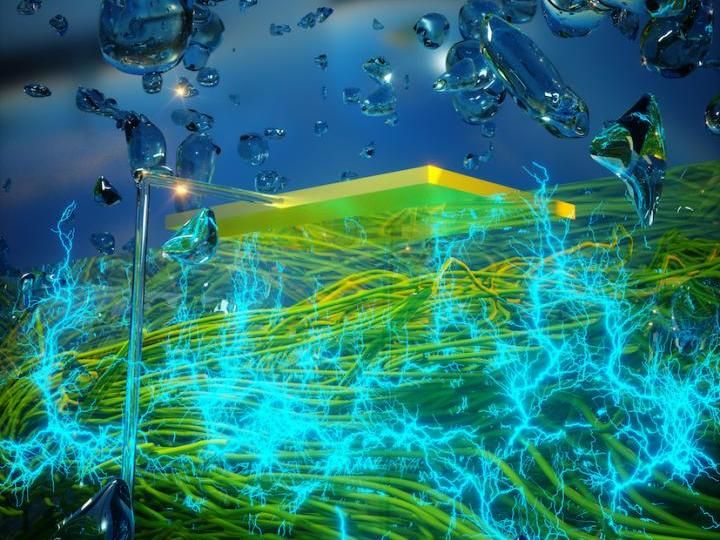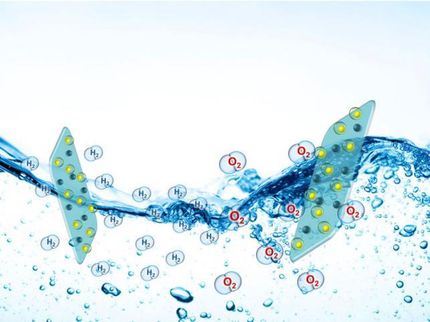A micro-supercapacitor with unmatched energy storage performance
A micro-supercapacitor made using a new electrode reached an energy density 1,000 times greater than existing electrochemical capacitors. With such a performance, comparable to current Li-ion micro-batteries, this energy storage device is a legitimate option for a range of applications from mobile electronics to wireless autonomous sensor networks. The breakthrough was a collaborative effort by researchers of the INRS Centre Énergie Matériaux Télécommunications and the Laboratory of Analysis and Architecture of Systems (LAAS-CNRS).
"The extent of the electrode's surface and the presence of pores of various sizes are key to a large storage capacity. We designed this new 3D electrode using an electrochemical process to synthesize a very porous gold structure. Ruthenium oxide, a pseudocapacitative material featuring high electrical conductivity and very good cyclability, was then inserted into the structure, resulting in unsurpassed energy density. For this type of application, component sizes are reduced to a few square millimeters, making it possible to use such expensive materials," explained INRS professor Daniel Guay, Canada Research Chair on Energy Nanomaterials.
Miniaturized energy storage devices are crucial for energy autonomy, in increasing demand for autonomous electronic systems and wireless technology. The most common such devices are micro-batteries, which are inadequate in terms of lifetime and thermal stability. They also don't work well in extreme temperatures. Micro-supercapacitors, meanwhile, have virtually unlimited lifetime, greater stability, greater power density, low internal resistance, and work well at different temperatures, but their energy capacity is far weaker than batteries.
The micro-supercapacitor jointly developed by these French and Quebec research teams shows much promise for satisfying current requirements in terms of energy autonomy as it combines the strength of both of these energy storage mechanisms.
Original publication
Other news from the department science

Get the chemical industry in your inbox
By submitting this form you agree that LUMITOS AG will send you the newsletter(s) selected above by email. Your data will not be passed on to third parties. Your data will be stored and processed in accordance with our data protection regulations. LUMITOS may contact you by email for the purpose of advertising or market and opinion surveys. You can revoke your consent at any time without giving reasons to LUMITOS AG, Ernst-Augustin-Str. 2, 12489 Berlin, Germany or by e-mail at revoke@lumitos.com with effect for the future. In addition, each email contains a link to unsubscribe from the corresponding newsletter.
Most read news
More news from our other portals
Last viewed contents

On the edge of friction - Precise insight into how two microscopic surfaces slide over one another could help in the manufacture of low-friction surfaces
New technique 'sees' radioactive material even after it's gone
Orlov_(diamond)

Old Mystery Solved: a "New Kind of Electrons" - Why do certain materials emit electrons with a very specific energy?
Killer silk: Making silk fibers that kill anthrax and other microbes in minutes

Putting quantum scientists in the driver's seat
Altana Pharma invests in new High Throughput Screening system from Thermo Electron




























































